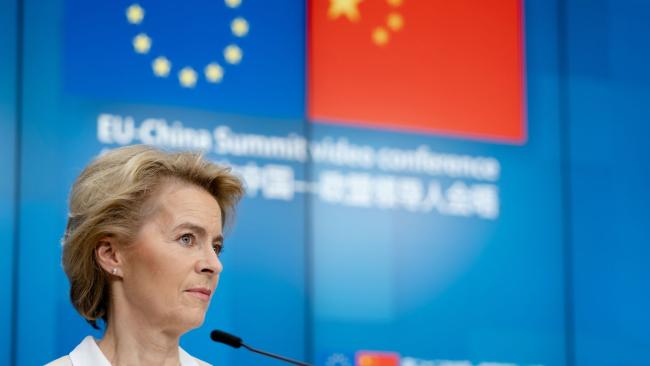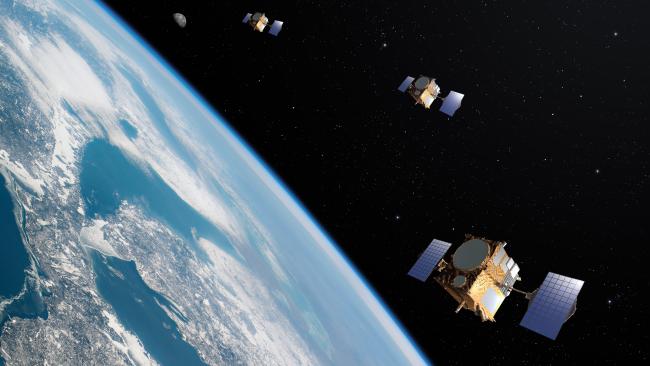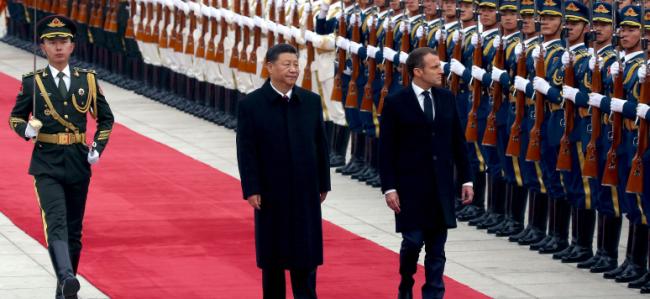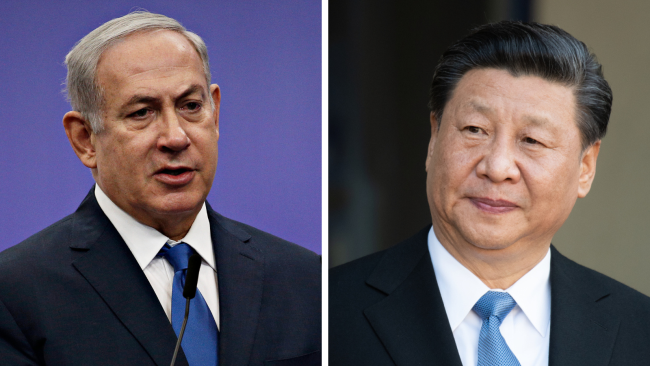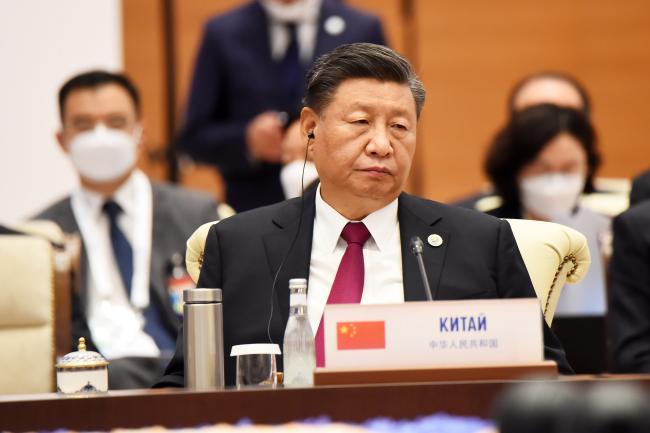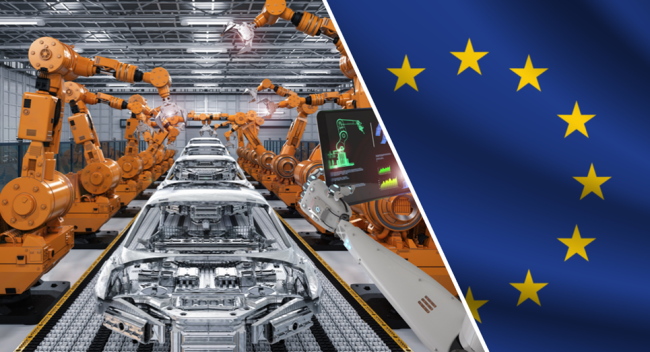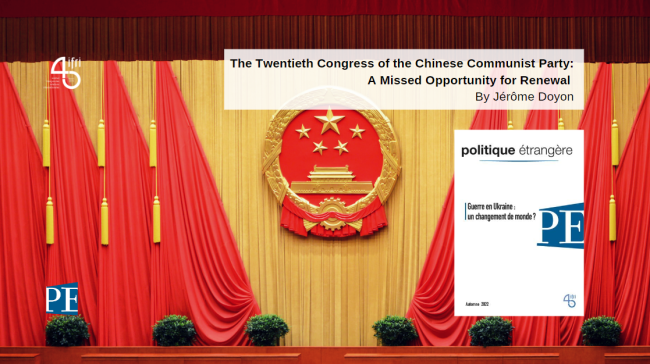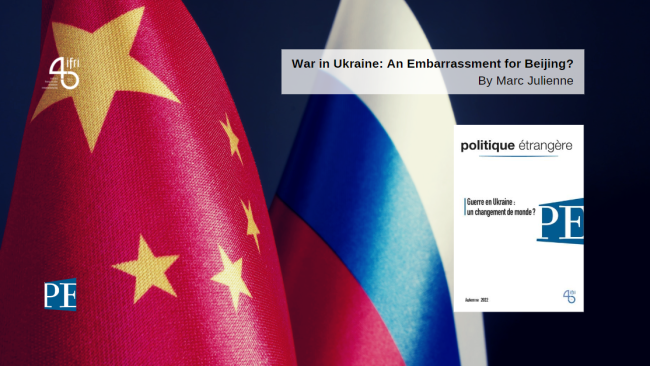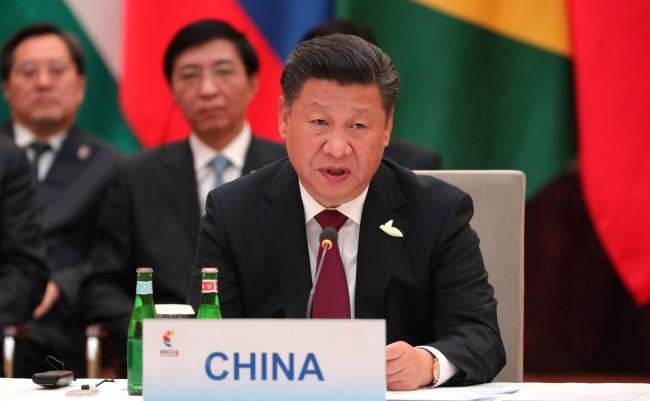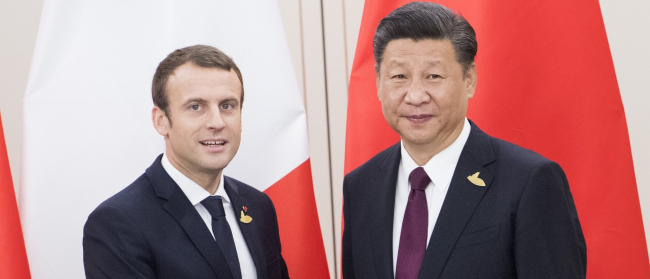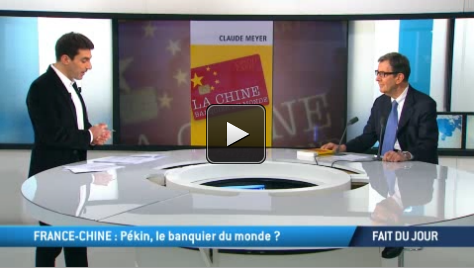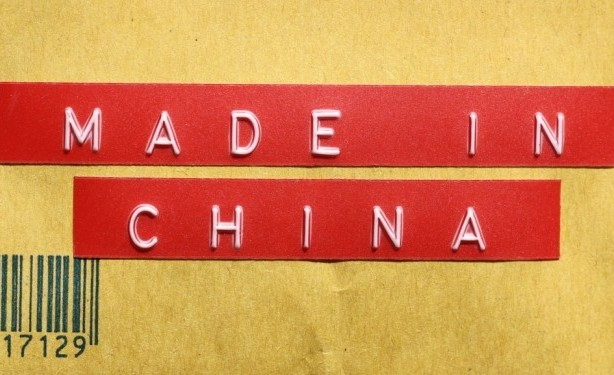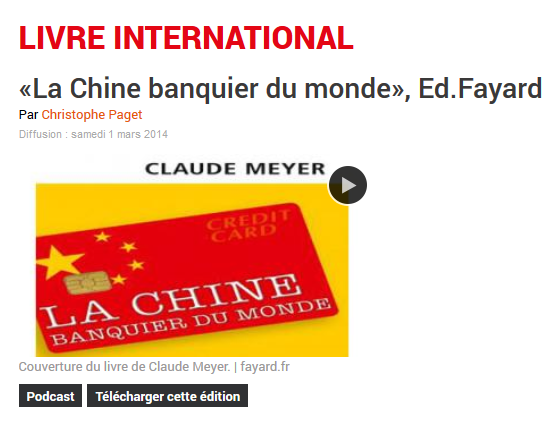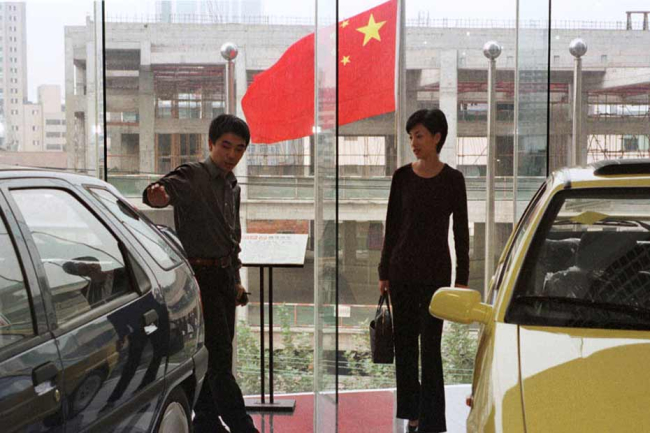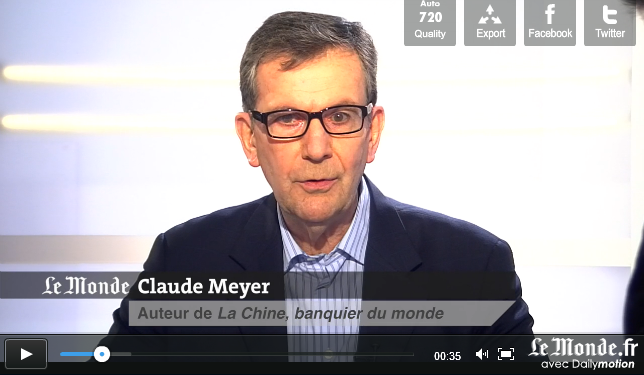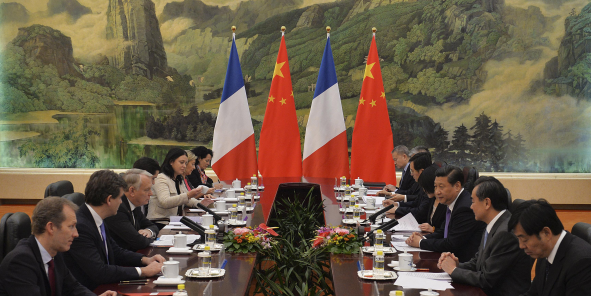China
China's diplomatic, military, economic and technological assertiveness, as well as its growing rivalry with the United States, raise certain apprehensions among its neighbors and Europeans alike.
Related Subjects

EU's China policy staying on track despite intensifying debate
While French President Emmanuel Macron’s state visit to China is viewed by some to be an exercise in stirring the pot, this does not mean that the European boat has veered off course. The EU is used to robust debate among and within member states, and can take this as another opportunity to affirm their stance on China.
China in the Race to Low Earth Orbit: Perspectives on the Future Internet Constellation Guowang
In April 2021, the Chinese government officially, but rather quietly, established a new state-owned enterprise (SOE) named China SatNet. Its mission: build out China’s “mega-constellation” program for low Earth orbiting internet satellites, known as Guowang (“national network”).
Emmanuel Macron Visits China: Stability in the Taiwan Strait Should be a Priority for France
President Emmanuel Macron will visit China from April 4 to 8 for the first time since 2019 and five months after his meeting with Chinese President Xi Jinping, on the sidelines of the G20 summit in Bali.
The Sino-Russian Partnership: Assumptions, Myths and Realities
When Xi Jinping and Vladimir Putin announced a “no limits friendship” at their February 2022 summit, the message was that Beijing and Moscow had reached a new peak in relations.
Israel and China, a Test of Loyalty for the United States?
Like the Gulf monarchies, Israel has strengthened its economic cooperation with China since Xi Jinping came to power in 2013, leading to an influx of Chinese capital, whether in Tel Aviv's high-tech sector or in Israel's port infrastructure.
Whither China After 10 Years of Economic Policies Guided by Xi?
As the 20th national congress of the Chinese Communist Party (CCP) draws closer, this is an opportune moment to appraise China’s economic achievements over the past decade under President Xi Jinping’s guidance and to identify the challenges the country will have to address during the next five years.
The European Union Industrial Strategy: Reconciling Competition and Geoeconomic Challenges
The EU’s basic assumptions, on which it grounds its economic and trade power, are being steadily cast into doubt. The EU’s main trade partners, the US and China, increasingly set their sights on securing their supply chains, which may further a potential decoupling.
The Twentieth Congress of the Chinese Communist Party: A Missed Opportunity for Renewal
The twentieth Congress of the Chinese Communist Party (CCP), planned for the fall of 2022, is expected to be a demonstration of immobilism.
War in Ukraine: An Embarrassment for Beijing
From the beginning of the war in Ukraine, Beijing has adopted an outward posture of neutrality while in fact supporting Moscow.

War in Ukraine: A New World?
Beyond the tactical sphere, the conflict in Ukraine has already had numerous repercussions, and its conclusion will provoke many more in the global system. In this special issue, Politique étrangère explores some potential outcomes.
China’s Belt & Road and the World: Competing Forms of Globalization
China increasingly sees its flagship foreign policy project as a tool for restructuring global governance and a vector for promoting a new form of globalization.
France and China's Belt and Road Initiative
Under President Macron, France has staked out a positive but principled position towards China's BRI.
Xi Jinping’s Institutional Reforms: Environment over Energy?
During its two sessions (lianghui) in March 2018, the National People’s Congress (NPC) announced China’s most important institutional reforms in the last 30 years. These changes occurred right after Xi Jinping consolidated his power and at a time when stakeholders working in the energy field were expecting more clarity on policy orientations.
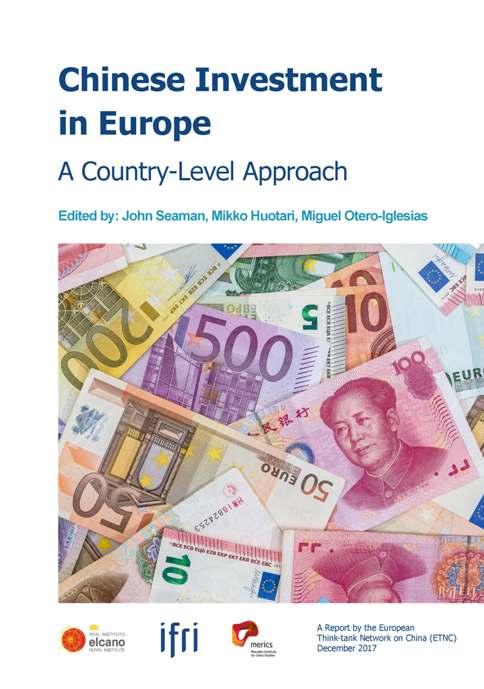
Chinese Investment in Europe. A Country-Level Approach
Chinese investments in Europe have surged in recent years, becoming both a source of hope and growing concern across the continent.
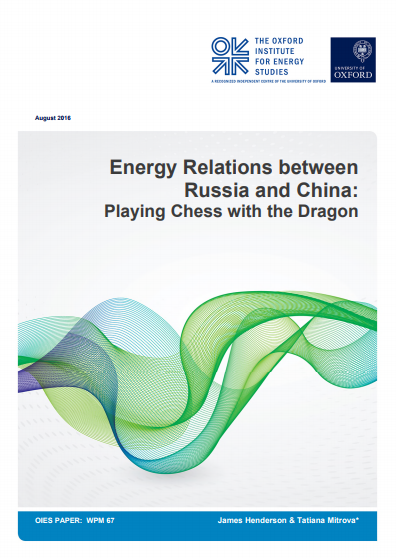
Energy Relations between Russia and China: Playing Chess with the Dragon
Post-sanctions Russia-China energy relations: what expectations?
Scientific Cooperation in the South China Sea: A vector for China's security diplomacy in Southeast Asia?
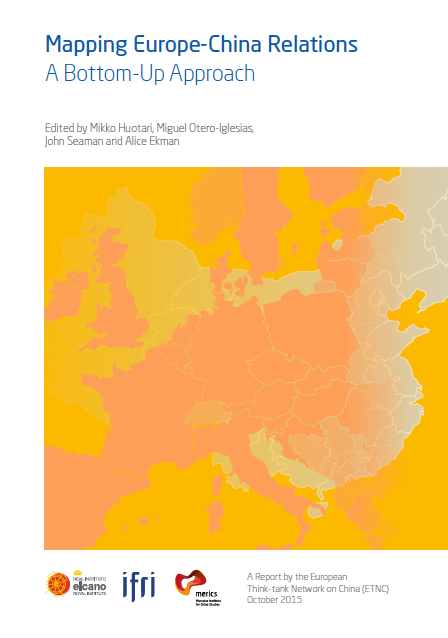
Mapping Europe-China Relations: A Bottom-Up Approach. A Report of the European Think-tank Network on China ETNC, October 2015
As China’s rise continues to shape and shake the course of international affairs, and Europe enters a new chapter in its collective history, Europe-China relations are becoming more relevant, but also much more complex.
Emerging Markets and Migration Policy: China
China’s development has given rise to massive flows of both domestic migration and international emigration.
The Distinctive Features of China's Middle Classes
This study seeks to lay the foundations for a better understanding of the Chinese middle classes. It goes beyond the traditional classification by revenue and identifies the distinctive features of China’s middle classes by taking into account relevant historical events, current sociopolitical and economic contexts, and key expectations of the population.
China's Growing Natural Gas Insecurity and the Potential of Chinese Shale Gas
China is poised for a dramatic increase in its demand for natural gas. As total energy demand has risen to record levels in the last five years, China has found itself in an increasingly difficult bind: the social and environmental burden from coal is becoming too heavy to bear and a growing dependence on foreign oil is becoming strategically more risky with the passage of time.
La Chine est-elle le banquier du monde ?
Auteur de "La Chine, banquier du monde", Claude Meyer est l'invité de Mohamed Kaci dans le 64' de TV5MONDE. Docteur en économie et ancien dirigeant de banque, Claude Meyer enseigne à Sciences-Po. Chercheur associé au CERI et au GEM, il a publié de nombreux ouvrages et articles sur l’Asie.
Chine. Les handicaps majeurs de l’économie chinoise
Le fait de chausser les seules lunettes de l’économie pour étudier la Chine peut conduire à des erreurs de perspective.
Et encore, dans ce cas-là, il ne s’agit souvent que du commerce extérieur chinois.
Or, le pays non seulement voit des formes de contestation interne à la fois se multiplier et se diversifier, mais ses responsables politiques devront affronter des défis internes considérables.
On connaît les grands chantiers, actuels ou à venir : laissés pour compte du développement, gestion des mégapoles, natalité, vieillissement de la population, systèmes de retraite, corruption, violences sociétales, liberté d’expression, etc.
Comment donc réduire toutes ces vulnérabilités ?
La Chine banquier du monde
Cette semaine, le livre international est planétaire, puisqu’on va parler de La Chine banquier du monde. Qu’est-ce que la Chine achète, qu’est-ce que la Chine finance, d’où vient cet argent chinois qui semble inépuisable ? Réponses avec l’auteur de ce livre, Claude Meyer, docteur en économie, enseignant à Sciences Politiques.


Chine-France, mariage forcé ?
Notre invité est :
Claude Meyer
Economiste, ancien dirigeant de banque et enseignant à Sciences–Po.
Chercheur associé au CERI (Centre d'études et de recherches internationales) et au GEM (Groupe d’économie mondiale)
Il publie La Chine, banquier du monde aux éditions Fayard.


La Chine, banquier du monde ?
Après le tsunami des exportations, voilà la déferlante chinoise sur la finance. A l’instar des autres grandes puissances économiques de la planète, la Chine dispose aujourd’hui de multiples canaux d’influence issus de son pouvoir économique. Les utilise-t-elle pour servir ses propres intérêts géopolitiques ? Y parvient-elle ? La Chine superpuissance mondiale… à quelle échéance ? Et avec quel régime politique ?
Le modèle chinois "est à bout de souffle"
TROIS QUESTIONS A - Claude Meyer, professeur d’économie internationale et auteur de deux ouvrages sur le Chine.
L’INFO. La Chine a dévoilé le chiffre de sa croissance lundi. A 7,7%, il est toujours largement supérieur à la plupart des pays développés, mais reste que ce résultat est le plus bas des treize dernières années. La Chine, désormais concurrencée par ses voisins asiatiques, n’est plus aussi attractive. L’Etat souhaite faire évoluer son modèle vers l’industrie innovante et la consommation intérieure.
La Chine et les paradis fiscaux
Pour Claude Meyer, auteur de « La Chine, banquier du monde », l'internationalisation des grandes entreprises du pays et un système financier inadapté expliquent le recours au système offshore.




La Chine est-elle vraiment la première puissance économique mondiale ?
La Chine est-elle vraiment la première puissance économique mondiale ? La Banque mondiale le dit. En Afrique comme en France, on accueille à bras ouverts les investissements chinois. Mais, Pékin joue sur deux tableaux : acteur majeur de l’économie mondiale et, malgré tout, puissance émergente. Au moment où la croissance économique de l’empire du Milieu faiblit, où va la Chine, où entraîne-t-elle le monde ?
Support independent French research
Ifri, a foundation recognized as being of public utility, relies largely on private donors – companies and individuals – to guarantee its sustainability and intellectual independence. Through their funding, donors help maintain the Institute's position among the world's leading think tanks. By benefiting from an internationally recognized network and expertise, donors refine their understanding of geopolitical risk and its consequences on global politics and the economy. In 2025, Ifri supports more than 80 French and foreign companies and organizations.







